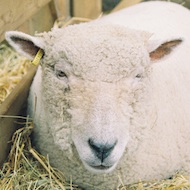Resistance reports are a "timely reminder" for the UK

Vets and farmers are being urged to integrate 4-AD and 5-SI products.
Sheep vets and farmers are being advised to integrate 4-AD and 5-SI wormer classes into parasite control programmes.
The warning comes after reports in the Netherlands of sheep nematodes becoming resistant to the 4-AD group of anthelmintics.
The Sustainable Control of Parasites (SCOPs) group says full details are not yet known but it is believed resistance has occurred as a result of reliance on 4-AD products as nematodes were resistant to all other available classes.
Peter Baber, sheep farmer and SCOPs chairman, said this comes as a "timely warning to the UK".
"‘There are still a large number of UK farms where one or more of the three older groups remains effective," he said. "If we carefully integrate the 4-AD and 5-SI products into worm control programmes now, it will extend the useful life of all groups.
"The Dutch example serves to illustrate the folly of us leaving them until they are the only option".
For further information on SCOPs' advice, visit: http://www.scops.org.uk/



 HMRC has invited feedback to its communications regarding the employment status of locum vets and vet nurses.
HMRC has invited feedback to its communications regarding the employment status of locum vets and vet nurses.